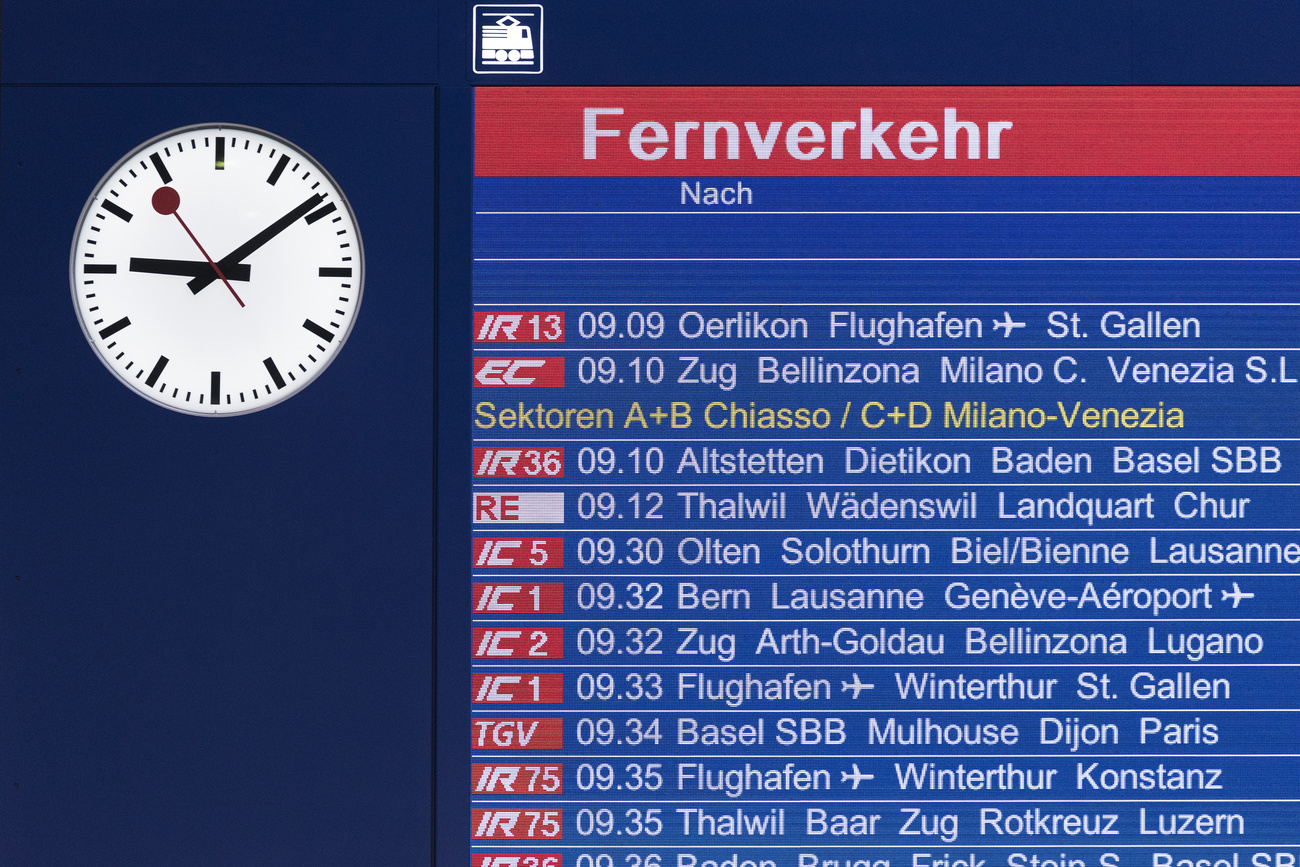
Swiss Federal Railways negotiates with neighbours to cut train delays

Swiss Federal Railways (SBB/CFF) is negotiating with Austria, Germany and Italy to minimise the impact of delays to rail services in Switzerland. SBB is only satisfied with the punctuality of French trains.
Delays to long-distance trains from Germany, Austria and Italy to Switzerland are commonplace and have a negative impact on connections in Switzerland.
To mitigate the delays caused by the German rail company Deutsche Bahn (DB), SBB no longer wants to include trains arriving from Munich to Zurich via St Gallen in the Swiss timetable, SBB told the Keystone-ATS news agency, confirming a report in the SonntagsZeitung newspaper. Eurocity trains are integrated into the Swiss timetable, but if a Eurocity misses its slot, it is not possible to overtake a slower train and make up the lost time.
+ Swiss railway seeks to mitigate impact of German strike
To reduce delays, SBB no longer wants to include these trains in the Swiss timetable on the St Gallen-Zurich line. The stop in St Gallen should only be used for disembarking in Switzerland from Germany. In addition, the waiting time for Eurocity trains arriving late in Switzerland must be adjusted.
Earlier departure from Milan
Trains from Italy’s Milano Centrale station to Switzerland are set to depart earlier. This will give SBB more time to absorb any delays on the Simplon rail route from Milan to Geneva or Basel via Brig.
+ Switzerland and Italy resolve train issue
According to SBB, punctuality on this line “fell over the summer, which is why we are working on improvements in collaboration with our Italian partners”, it told SonntagsZeitung. SBB estimated that the punctuality of international passenger traffic from Italy on the Gotthard route was at an “acceptable level”.
+ How to behave on a Swiss train
SBB did not reveal any details of negotiations with Austrian Railways (ÖBB). Various proposals for improvements are currently under discussion, it said in a press release. However, SBB said it was “not satisfied” with the punctuality of long-distance passenger services from Austria.
This news story has been written and carefully fact-checked by an external editorial team. At SWI swissinfo.ch we select the most relevant news for an international audience and use automatic translation tools such as DeepL to translate it into English. Providing you with automatically translated news gives us the time to write more in-depth articles. You can find them here.
If you want to know more about how we work, have a look here, and if you have feedback on this news story please write to english@swissinfo.ch.

In compliance with the JTI standards
More: SWI swissinfo.ch certified by the Journalism Trust Initiative































You can find an overview of ongoing debates with our journalists here . Please join us!
If you want to start a conversation about a topic raised in this article or want to report factual errors, email us at english@swissinfo.ch.